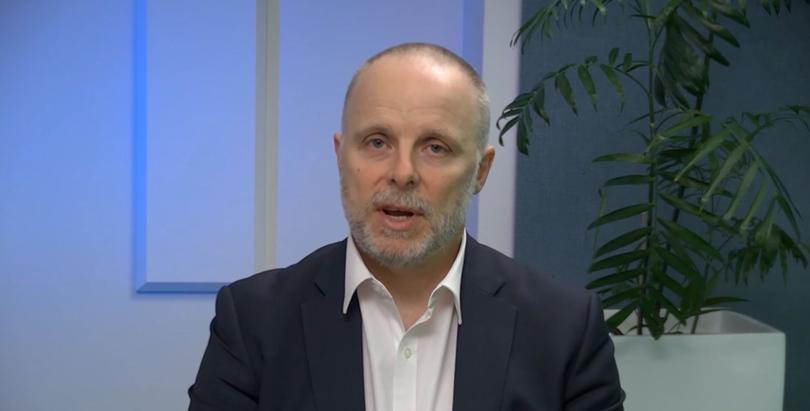James Tregurtha of Department of Climate Change, Energy, the Environment and Water behind Nature Positive laws
Meet the faceless Canberra bureaucrat leading the Albanese Government’s controversial push to overhaul green laws — and he won’t say whether he’s ever visited the country’s mining heartland.

The Canberra bureaucrat leading a crucial part of Federal Labor’s radical environmental law overhaul, which will have huge ramifications for Australia’s powerhouse mining industry, won’t say if he’s ever even visited the country’s minerals heartland.
Taxpayers are forking out $34 million over the next two years for a special environment taskforce — led by James Tregurtha — to come up with ideas that have so far included 40-kilometre-per-hour highway speed limits in remote mining areas.
Mr Tregurtha is in charge of the Taskforce for Environmental Legislative Reform and the establishment of Environmental Protection Australia, which is driving Federal Labor’s so-called “Nature Positive Plan”.
Sign up to The Nightly's newsletters.
Get the first look at the digital newspaper, curated daily stories and breaking headlines delivered to your inbox.
By continuing you agree to our Terms and Privacy Policy.He has been a long-term environmental policy bureaucrat at a federal level, serving in roles including the ‘Assistant Secretary, South-East Australia, Environment Assessments Branch’ and ‘Senior Executive Service Band 2 in the Department of the Environment and Energy’.
Following queries about Mr Tregurtha’s purported X (formerly Twitter) account to the Department of Climate Change, Energy, the Environment and Water the account was promptly locked to unapproved followers.
Last week The Nightly revealed a now-scrapped proposal to introduce a 40-kilometre-per-hour speed limit on large stretches of national and state highways across the Pilbara region in Western Australia’s north to “mitigate damage to fauna”.

The Pilbara is both sparsely populated and Australia’s most vital mining region by a considerable distance, meaning such a proposal would likely wipe billions in economic productivity from the country’s bottom line.
Criminal and severe financial penalties are also set to be introduced for breaches under the new regime, including a maximum fine of $782.5 million.
An industry source involved in closed-door briefings with key members from the task force told The Nightly the speed limit plan was “shockingly out of touch with reality”.
There were also plans to establish comprehensive cane toad management requirements, which would make mining companies responsible for upgrading nearby agricultural assets — such as pastoral water points — which they typically do not own.
On top of this, cane toads are yet to be found in material numbers within the Pilbara region.
The Nightly reached out to Mr Tregurtha asking if he’s been to the Pilbara before, particularly on a mine site, receiving a response from a Department of Climate Change, Energy, the Environment and Water spokeswoman.
“The Department has a number of staff who have travelled to the Pilbara, including on to mine sites, as part of its environmental regulatory role,” she said.
“These staff have, and will continue to be, engaged in the development of the Nature Positive reforms and any associated implementation.
“We are continuing to work with all stakeholders to get the legislation ready for introduction into Parliament as soon as possible this year.”
Mr Tregurtha’s task force will control $34m across the two years starting this financial year. That is separate from the $121m budgeted over four years from this financial year to establish Environment Protection Australia — an agency to enforce environmental laws.

In November Mr Tregurtha said the EPA would “take (the) politics out of decision-making and act as a tough cop on the beat”.
Another $51.5m across the same four-year timeframe is slated to set up Environment Information Australia, another government body which will exist “to provide an authoritative source of high-quality environmental information”.
On top of that $7.7m is put aside for the Nature Repair market, which will be a “world-first” biodiversity market.
In May Mr Tregurtha told a Senate estimates committee that $34m would fund his taskforce to “do the policy and consultation work to develop the revised legislative package”.
“In addition to that, my team is leading the work in the department on developing national environmental standards, which again involves a significant consultation program and drafting program,” he said at the time.
“(This) again involves a significant consultation program and drafting program that we expect to happen over the course of the next two years as we move this year towards releasing the package for consultation that Mr (Dean) Knudson spoke about earlier, then responding to comments, shepherding that work—well, supporting the Minister, I should say—to shepherd that work through the parliament.”
Federal Labor’s Nature Positive Plan has been underpinned by a commitment to “zero new extinctions” and “protecting” 30 per cent of Australia’s land and water by 2030.
